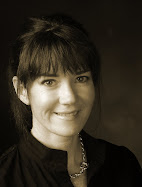I have a confession to make….
I am not proud of this, but there was a time in the not too distant past that I harbored the misconception that a light neutral palette added up to a room that was b-o-r-i-n-g. I was one of the party leaders in the campaign against white walls.
In all fairness however, this grudge was aimed in large part at the non-descript, uniform wall/ceiling/trim shade of off-white that builders always seem to select as the safe choice for new homes.
Unfortunately, the result of this lack of free will in making color selections, has been a backlash against “white” that has had everyone (well, maybe not everyone, but too many of us) blasting our walls with colors like barn red and buttercup yellow. While I’m not opposed to strong color as a rule, I think that it is not necessarily the best or only solution to the “white box.” What is most often missing in these non-descript rooms is any type of visual interest. The instant gratification “solution” to the boredom is often to add color to the walls--the bolder the better. But sometimes more is not more. Even the warmest, boldest color choices can result in a room that is visually dull. (See photo above)
However, with the right combination of architectural detail, contrast, texture and layering of muted colors, a white or light colored room can come to life. Without these elements, a neutral palette (or any other for that matter) falls flat.
Frequently, a space designed with primarily light and neutral finishes feels subliminally as if it might float away. A light colored room needs weight, real or implied, to ground it. This room by Susan Ferrier has a number of “weighty” elements. In addition to the coffered beam ceiling, the stone column and stone topped table with it’s pottery base provide an ample dose of gravity to balance the light walls and floors.
Sometimes all that a high-key space needs is just a blush of color. In this lovely space, Suzanne Kasler selected a beautiful icy blue fabric for a pair of wing chairs—giving the room exactly enough color to make it come to life.
Often, what is missing in the “white box” (especially in new home construction) is architectural interest. This room designed by Larry Lazlo is rich with architectural detail. The addition or beefing up of crown moldings, baseboards, door and window trim, etc. can have a dramatic impact!
Here, the designer uses a combination of texture and high contrast to create a rustic yet elegant and moody ambiance. I love the way that dark stained ceiling beams instantly create drama and a sense of age in a white room. The rustic weathered shutters, the nubby linen upholstery, the baskets, the smooth glass demijohn, the scraped wood floors, the stone fireplace surround and the patterned rug all create visual interest with texture. (Although, personally, I would have used a faded oushack or seagrass rug.)
A few more examples of neutral palettes that I think are “successful.”
The combination of weathered finishes and natural materials mixed with the warm french gray on the walls and cabinetry make this kitchen feel very warm and inviting.
This space, designed by Bobby McAlpine, is definitely on the cooler side of neutral. Despite the soft velvet and cashmere fabrics, the smoky gray and blue give this room a crisp, almost breezy feel.
In this bedroom by Los Angeles designer Madeline Stuart, neutral beige is punctuated with bursts of deep jewel-toned color. Love it! This is a particularly successful technique here in sunny California, where the bright light can sometimes “wash-out” a neutral palette.
This very “modern” feeling white room sidesteps the dreaded “sterile” label by loading up on architectural detailing. I think the recessed Chippendale styled cabinetry is amazing!
So, to those of you still living in a “white box”, make sure that you have considered all of the elements before you reach for a bucket of bright paint; color may not be all that is missing…..
Would I live with builder beige walls? No way! Could I live with a beautiful white or ivory that I had chosen to work perfectly with an overall neutral palette? Absolutely!




















































No comments:
Post a Comment